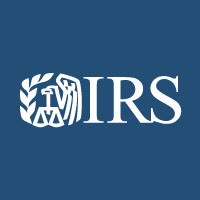IR-2019-206, December 13, 2019
WASHINGTON – The Internal Revenue Service said today that the Taxpayer First Act, enacted July 1, requires tax exempt organizations to electronically file information returns and related forms. The new law affects tax exempt organizations in tax years beginning after July 1, 2019.
The following IRS forms are included in the mandate:
- Form 990, Return of Organization Exempt from Income Tax.
- Form 990-PF, Return of Private Foundation or Section 4947(a)(1) Trust Treated as Private Foundation.
- Form 8872, Political Organization Report of Contributions and Expenditures.
- Form 1065, U.S. Return of Partnership Income (if filed by a Section 501(d) apostolic organization).
Those who previously filed paper forms will receive a letter from the IRS informing them of the change. Filing deadlines vary by form type. The IRS will postpone the required e-filing of Form 990-EZ for one year, while optional e-filing continues to be available. Although Forms 990-T and 4720 will come under the e-filing requirement next year, the IRS will continue to accept these forms on paper pending conversion to electronic format.
Form 8872
The IRS will no longer accept paper Forms 8872 reporting on periods after 2019. Forms 8872 reporting information for periods starting on or after Jan. 2020, will be due electronically by Section 527 organizations. These include political parties, political action committees and campaign committees of candidates for federal, state or local office.
Among other requirements, most tax-exempt political organizations have a requirement to file semiannual, quarterly or monthly reports on Form 8872. To file electronically, the organization must have the username and password it received from the IRS after electronically filing its initial notice (Form 8871). To replace a username or password, please contact: IRS, Attn: Request for 8872 Password, Mail Stop 6273, Ogden UT 84201; Fax (855) 214-7520. Organizations can file electronically using the IRS website at IRS.gov/polorgs.
Form 990 and 990-PF e-filing
Under the legislation, most e-filings won’t be due before Dec. 15, 2020, from charities and other exempt organizations that generally file Form 990 or 990-PF by the 15th day of the fifth month after the tax year-end. In other words, Forms 990 and 990-PF with tax years ending July 31, 2020, and later MUST be filed electronically. Form 990 and 990-PF filings for tax years ending on or before June 30, 2020, may still be on paper. In the case of a short tax year or certain other circumstances detailed in the 990 or 990-PF Instructions, the IRS will continue to accept paper filing as its systems are yet unable to receive these forms electronically. More information on software providers is available at IRS.gov.
Form 990-EZ transition relief
For small exempt organizations, the legislation specifically allowed a postponement (“transitional relief”). For tax years ending on and before July 31, 2020, the IRS will accept either paper or electronic filing of Form 990-EZ, Short Form Return of Organization Exempt from Income Tax. For tax years ending Aug. 31, 2020, and later, Forms 990-EZ must be filed electronically. Generally, Form 990-EZ is for organizations with annual gross receipts less than $200,000 and total assets at tax year-end less than $500,000.
Paper Forms 990-T and 4720
In 2020, the IRS will continue to accept paper forms that are pending conversion into electronic format. These include Form 990-T, Exempt Organization Business Income Tax Return, and Form 4720, Return of Certain Excise Taxes Under Chapters 41 and 42 of the Internal Revenue Code. The IRS plans to have these returns ready for e-filing in 2021 (reporting on tax year 2020).
The Taxpayer First Act aims to expand and strengthen taxpayer rights and to reform the IRS into a more taxpayer friendly agency. The legislation requires the agency to develop a comprehensive customer service strategy, modernize its technology and enhance its cyber security. More information on the Taxpayer First Act is available at IRS.gov.

